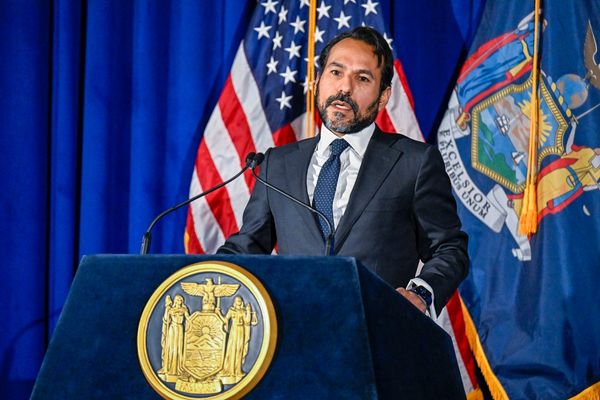The grim headlines are hard to miss: Americans are mired in debt, they aren't saving enough to retire and many lack financial literacy.
That's worrisome news. But it's also an opportunity for those seeking to provide financial planning services.
"In general, there are very few Americans served by a comprehensive financial planner," said James Lee, a certified financial planner (CFP) at Lee Investment Management in Saratoga Springs, N.Y. "We need more financial planners in the United States and throughout the world to serve all those people not currently served by financial planners."
Fortunately, there's a pipeline of rising advisors who find their calling at a young age. They major in accounting, economics or finance in college, pursue internships at advisory firms and gradually gain the expertise to thrive.
But others are late bloomers. They start off in a different direction and shift gears to become advisors in their late 20s, 30s and 40s.
Financial Planning: A Career Shift Opportunity
Early- and midcareer changers initially work in a range of fields. From firefighters to pastors to therapists, they realize that their ability to assist others translates nicely to serving as a financial planner.
Certain business ventures carry significant risk of failure, such as opening a restaurant. Launching a career as an advisor is not a cakewalk, but the odds of success soar if you plan the transition carefully. And if you have the right mix of technical skills and character traits.
"If making money is a big driver, I'd think twice about it," said Neal Frankle, a Los Angeles-based certified financial planner. "But if you want to do it because you love helping people and you love investing, that's fantastic."
To Succeed In As A Financial Advisor You Need Perseverance And A Target Market
Frankle added: "To succeed, you have to have an understanding of how money works. But more importantly, you have to understand how people work."
Pick The Right Business Model
Even if money isn't a primary goal, it's still a factor for many career changers. Giving up a steady paycheck to embrace the unknown often comes with a short-term cost.
While there's no requirement to earn professional designations, many newcomers spend many months (and thousands of dollars) earning their CFP. If they join a large financial services firm, the company might provide training and support their professional development.
Newly minted CFPs earn on average about $52,000 in their first year, but the pay tends to increase over time. CFPs with 10 to 19 years of experience earn on average about $87,000. Many seasoned advisors earn considerably more.
Of course, compensation varies widely based on an advisor's style of practice and business model. Traditionally, advisors charge clients a percentage of assets under management (AUM). The percentage, often 1%, might change based on the amount of a client's investable assets.
Some advisors favor a hybrid fee approach. They charge some clients a percentage of AUM while offering a monthly fee to others. This flexibility stabilizes advisors' income during volatile periods, such as March 2020, when a steep and sudden pandemic-driven market downturn reduced investable assets.
Many advisors seek a wealthier clientele. But career changers can build a solid practice by pursuing the mass affluent — often defined as households with $100,000 to $1 million in liquid assets — and charging them an hourly fee or offering tiers of service based on their income or the complexity of their holdings.
"Today, there are a number of different business models to serve clients who don't have a lot of investable assets," Lee said. "That's a really welcome development and will continue to grow as demand for financial planning services increases."
Automated Platforms Vs. The Human Touch
If you're looking to change careers, you want to land on an in-demand profession. With the average age of financial planners in their late 50s, the need for new blood will only grow in the years ahead.
"Our industry will lose (a lot of) advisors over the next decade," said Joe Lukacs, founder of Magellan Mastermind, a financial advisor coaching group in Melbourne, Fla. "There aren't enough young advisors coming into the business, so there's an opportunity for people to come into a firm and help sunset retiring advisors and be part of a multigenerational team."
Lukacs sees military retirees and former hospitality industry employees as two groups showing interest in making a midcareer move into financial planning.
For career switchers who seek an entry-level job at a financial planning firm, Lukacs urges them to look beyond the pay package.
"Be sure to ask about the firm's culture, leadership and personal development plan," he said. "Culture matters: Are they client-centric or more of a sales culture? What's the leader like? That person's DNA is all over the organization. And is there a formalized training and development plan?"
Like many industry observers, career switchers may wonder about the rise of automated investment platforms. If algorithms and artificial intelligence turn investment advice into a commodity, might robo-advisors supplant human advisors?
"For the last 10 years, we keep hearing that advisors will be replaced by robots," Frankle said. "I think (it's) the opposite."
He argues that high-net-worth clients will be more likely to offload portfolio management to an advisor whom they like and trust. If that advisor offers a wide range of services — from tax prep to career counseling to legacy planning — then the relationship delivers even more value.
Gaining Confidence
Career changers can also face a psychological barrier. They may lack confidence in dishing out money advice to people with far more money than themselves.
When Frankle launched his financial planning career in the early 1990s, he felt intimidated telling millionaires how to invest.
"In time, I was able to focus on being of service to them rather than comparing myself to them," he said.
Newcomers to financial planning who prioritize superior service are poised to succeed.
Yes, they will need to attract clients — and face lots of rejection along the way. And they must generate referrals to grow their practice. But long-term prosperity comes from cultivating relationships built on trust.
"One misunderstanding of the financial planning profession in general is that financial advice is fundamentally about selling products," Lee said. "Today, the truly successful financial planners have a fiduciary mindset" and always act in the client's best interest.







